Benefits of Mushroom Coffee: Complete Guide to This Wellness Trend
What Is Mushroom Coffee?
Mushroom coffee represents a revolutionary fusion of traditional coffee beans with medicinal mushroom extracts, creating a unique beverage that combines the familiar energy boost of caffeine with the adaptogenic properties of functional fungi. This innovative drink has gained tremendous popularity among health-conscious consumers seeking the benefits of coffee without some of its potential drawbacks, such as jitters, crashes, or digestive issues.
Unlike what the name might suggest, mushroom coffee doesn't taste like mushrooms. The earthy, sometimes bitter flavors of medicinal mushrooms are typically masked by the robust coffee taste, while the mushroom extracts work synergistically with caffeine to provide sustained energy, enhanced focus, and numerous health benefits. Most mushroom coffee blends contain significantly less caffeine than regular coffee—usually about half the amount—while offering additional functional benefits through bioactive compounds found in medicinal mushrooms.
The concept isn't entirely new; various cultures have used mushrooms for their health-promoting properties for thousands of years. However, the modern mushroom coffee trend represents a sophisticated approach to combining ancient wisdom with contemporary lifestyle needs. Today's mushroom coffee products typically feature extracts from well-researched functional mushrooms like Lion's Mane, Chaga, Reishi, and Cordyceps, each offering unique benefits that complement coffee's natural effects.
This comprehensive guide explores the science-backed benefits of mushroom coffee, how it works in the body, the different types available, and practical guidance for incorporating this functional beverage into your daily routine.

The Science Behind Mushroom Coffee Benefits
Understanding how mushroom coffee works requires examining both the individual components and their synergistic effects:
-
Caffeine and mushroom synergy:
- Mushroom compounds may help modulate caffeine's effects, reducing jitters and crashes
- Adaptogenic properties help the body manage stress response to caffeine
- L-theanine-like compounds in some mushrooms promote calm alertness
- Extended energy release compared to regular coffee
- Reduced tolerance buildup to caffeine over time
-
Bioactive compounds in medicinal mushrooms:
- Beta-glucans: Polysaccharides that support immune function and may help regulate blood sugar
- Triterpenes: Compounds that support liver function and stress adaptation
- Adaptogens: Substances that help the body adapt to various stressors
- Antioxidants: Compounds that combat free radicals and oxidative stress
- Nootropic compounds: Substances that may enhance cognitive function
-
Absorption and bioavailability:
- Coffee's natural compounds may enhance absorption of mushroom nutrients
- Hot water extraction during brewing releases bioactive compounds
- Combination consumption may improve overall bioavailability
- Synergistic effects may enhance individual compound benefits
- Regular consumption allows for cumulative adaptogenic effects
-
Neurological interactions:
- Mushroom compounds may support neurotransmitter balance
- Neuroprotective effects may complement caffeine's cognitive benefits
- Enhanced focus without overstimulation
- Improved stress resilience during mental demands
- Potential long-term brain health benefits
This scientific foundation explains why mushroom coffee often provides a more balanced and sustained energy experience compared to regular coffee.
Key Benefits of Mushroom Coffee
Enhanced Energy Without Jitters
One of the most reported benefits of mushroom coffee is sustained energy without the typical caffeine side effects:
-
Smooth energy delivery:
- Mushroom compounds help modulate caffeine absorption and metabolism
- Reduced peak caffeine levels prevent overstimulation
- Adaptogenic properties support steady energy production
- Less dramatic energy peaks and crashes compared to regular coffee
- Improved energy sustainability throughout the day
-
Reduced caffeine sensitivity:
- Lower overall caffeine content (typically 50-100mg vs 95-200mg in regular coffee)
- Mushroom compounds may buffer caffeine's harsh effects
- Better tolerance for caffeine-sensitive individuals
- Reduced anxiety and restlessness often associated with coffee
- Decreased likelihood of developing caffeine dependence
-
Improved stress response:
- Adaptogenic mushrooms help regulate cortisol levels
- Better management of stress-induced energy depletion
- Enhanced resilience to physical and mental stressors
- Maintained energy levels during challenging periods
- Reduced adrenal fatigue from chronic caffeine consumption
-
Enhanced physical performance:
- Cordyceps mushrooms may improve oxygen utilization
- Better endurance and stamina for physical activities
- Reduced fatigue during extended periods of activity
- Improved recovery from physical exertion
- Enhanced cellular energy production
-
Mental clarity and focus:
- Lion's Mane compounds support cognitive function
- Improved concentration without overstimulation
- Enhanced mental clarity and decision-making abilities
- Better sustained attention during demanding tasks
- Reduced brain fog often associated with caffeine crashes
This balanced energy profile makes mushroom coffee particularly appealing for individuals seeking sustained vitality without caffeine's potential drawbacks.
Cognitive Enhancement and Brain Health
Mushroom coffee offers significant benefits for cognitive function and long-term brain health:
-
Neuroplasticity support:
- Lion's Mane mushrooms contain compounds that stimulate nerve growth factor (NGF)
- Enhanced formation of new neural connections
- Improved brain adaptability and learning capacity
- Support for memory formation and retention
- Potential protection against age-related cognitive decline
-
Neuroprotective effects:
- Antioxidants in mushrooms help protect brain cells from damage
- Reduced inflammation in neural tissues
- Protection against oxidative stress in the brain
- Support for healthy aging of cognitive functions
- Potential reduced risk of neurodegenerative conditions
-
Enhanced focus and concentration:
- Improved sustained attention without overstimulation
- Better ability to filter out distractions
- Enhanced working memory performance
- Improved cognitive flexibility and problem-solving
- Better mental endurance during demanding tasks
-
Mood regulation and mental balance:
- Reishi mushrooms may help regulate stress hormones
- Improved emotional stability and resilience
- Better management of anxiety and mood fluctuations
- Enhanced overall sense of well-being
- Reduced mental fatigue and burnout
-
Memory and learning enhancement:
- Improved formation of new memories
- Enhanced recall of existing information
- Better learning efficiency and retention
- Support for both short-term and long-term memory
- Improved cognitive performance under stress
These cognitive benefits make mushroom coffee particularly valuable for students, professionals, and anyone seeking to optimize mental performance.
Immune System Support
The immune-supporting properties of medicinal mushrooms provide significant health benefits:
-
Beta-glucan immune modulation:
- Polysaccharides in mushrooms activate immune cells
- Enhanced macrophage and natural killer cell activity
- Improved immune surveillance and pathogen recognition
- Balanced immune responses (not over or under-reactive)
- Support for both innate and adaptive immunity
-
Antioxidant protection:
- High antioxidant content helps combat free radicals
- Reduced oxidative stress throughout the body
- Protection of immune cells from damage
- Enhanced overall cellular health and function
- Support for healthy aging and longevity
-
Seasonal immune support:
- Regular consumption may help maintain immune resilience
- Better adaptation to seasonal changes and stressors
- Potential reduced frequency and severity of common illnesses
- Enhanced recovery from minor infections
- Support during periods of increased immune challenge
-
Stress-immune connection:
- Adaptogenic properties help manage stress-induced immune suppression
- Better immune function during periods of high stress
- Reduced susceptibility to stress-related health issues
- Improved overall resilience to environmental challenges
- Enhanced ability to maintain health during demanding periods
-
Long-term immune optimization:
- Cumulative benefits with regular consumption
- Support for immune system maturation and balance
- Enhanced immune memory and response efficiency
- Better long-term resistance to pathogens
- Support for healthy immune aging
This immune support makes mushroom coffee valuable for maintaining health and resilience year-round.
Stress Reduction and Adaptogenic Benefits
The adaptogenic properties of medicinal mushrooms provide significant stress management benefits:
-
HPA axis regulation:
- Mushroom compounds help regulate the hypothalamic-pituitary-adrenal axis
- Improved cortisol rhythm and stress hormone balance
- Better adaptation to chronic stress conditions
- Reduced negative effects of prolonged stress exposure
- Enhanced stress resilience over time
-
Emotional balance and mood support:
- Reishi mushrooms traditionally used for calming effects
- Improved emotional stability during challenging periods
- Better management of anxiety and stress-related mood changes
- Enhanced overall sense of well-being and contentment
- Reduced symptoms of stress-related mental fatigue
-
Physical stress adaptation:
- Cordyceps mushrooms may improve physical stress tolerance
- Better adaptation to exercise and physical demands
- Enhanced recovery from physical stressors
- Improved energy efficiency during stress responses
- Reduced physical symptoms of chronic stress
-
Sleep quality improvement:
- Some mushroom compounds may support healthy sleep patterns
- Better relaxation and wind-down in the evening
- Improved sleep quality despite caffeine consumption
- Enhanced recovery during rest periods
- Better overall sleep-wake cycle regulation
-
Long-term stress resilience:
- Cumulative adaptogenic effects build over time
- Enhanced overall stress management capacity
- Better long-term health outcomes related to stress
- Improved quality of life under chronic stress conditions
- Enhanced ability to maintain performance during stress
These stress-management benefits make mushroom coffee particularly valuable for modern lifestyles characterized by chronic stress and demanding schedules.

Types of Mushrooms Used in Coffee Blends
Lion's Mane (Hericium erinaceus)
Lion's Mane is prized for its cognitive and neurological benefits:
-
Cognitive enhancement properties:
- Contains hericenones and erinacines that stimulate nerve growth factor
- Supports formation and repair of neural connections
- May improve memory, focus, and learning capacity
- Potential neuroprotective effects against cognitive decline
- Enhanced mental clarity and cognitive processing speed
-
Research findings:
- Studies show improvements in cognitive function in older adults
- Animal research demonstrates neuroplasticity enhancement
- Clinical trials suggest benefits for mild cognitive impairment
- Research indicates potential for supporting brain injury recovery
- Studies show improved mood and reduced anxiety in some participants
-
Taste and coffee compatibility:
- Mild, slightly sweet flavor that blends well with coffee
- Doesn't significantly alter coffee's taste profile
- Smooth texture that dissolves well in hot liquids
- Compatible with various coffee brewing methods
- Often used in morning coffee blends for cognitive support
Chaga (Inonotus obliquus)
Chaga is renowned for its exceptional antioxidant content:
-
Antioxidant powerhouse:
- One of the highest ORAC (antioxidant) values in natural foods
- Contains melanin, betulinic acid, and superoxide dismutase
- Supports cellular protection from free radical damage
- May help slow aging processes and support longevity
- Enhanced immune system support through antioxidant action
-
Traditional and modern uses:
- Historically used in Siberian folk medicine for vitality
- Modern research supports immune-modulating properties
- May help regulate blood sugar and cholesterol levels
- Potential anti-inflammatory effects throughout the body
- Traditional use for supporting energy and endurance
-
Coffee blend characteristics:
- Earthy, slightly bitter flavor that complements coffee
- Dark color that enhances coffee's appearance
- Robust flavor that can stand up to strong coffee
- Often used in blends targeting immune support and antioxidants
- Compatible with both light and dark coffee roasts
Reishi (Ganoderma lucidum)
Reishi is known as the "mushroom of immortality" for its adaptogenic properties:
-
Stress and sleep support:
- Contains triterpenes that may have calming effects
- Traditionally used to promote relaxation and better sleep
- May help regulate stress hormones and emotional balance
- Supports healthy response to chronic stress
- Often recommended for evening or afternoon coffee consumption
-
Immune and liver support:
- Beta-glucans support balanced immune function
- May help support healthy liver function and detoxification
- Traditional use for promoting longevity and vitality
- Potential cardiovascular health benefits
- Supports overall wellness and disease resistance
-
Flavor profile in coffee:
- Bitter, woody taste that may require flavor balancing
- Often combined with other mushrooms or natural sweeteners
- Best in smaller concentrations to avoid overpowering coffee
- Works well in evening coffee blends due to calming properties
- May be more palatable in flavored coffee variations
Cordyceps (Cordyceps militaris/sinensis)
Cordyceps is valued for energy and athletic performance support:
-
Energy and endurance benefits:
- May improve cellular oxygen utilization and ATP production
- Traditional use by athletes for enhanced performance
- Potential benefits for physical stamina and endurance
- May help reduce fatigue and support recovery
- Enhanced adaptation to physical stress and exercise
-
Respiratory and cardiovascular support:
- Traditional use for supporting lung function and breathing
- May help improve oxygen delivery throughout the body
- Potential benefits for cardiovascular health and circulation
- Support for healthy blood flow and vascular function
- May enhance overall physical vitality and wellness
-
Coffee blend applications:
- Mild, slightly sweet flavor that works well with coffee
- Often used in pre-workout or morning coffee blends
- Compatible with various coffee strengths and roast levels
- Popular among athletes and active individuals
- Complements coffee's natural energy-boosting properties
Each mushroom type brings unique benefits, and many commercial blends combine multiple varieties for comprehensive wellness support.
Mushroom Coffee vs. Regular Coffee
Comparative Benefits Analysis
Understanding the differences helps inform your beverage choices:
-
Caffeine content comparison:
- Regular coffee: 95-200mg caffeine per 8oz cup
- Mushroom coffee: 50-100mg caffeine per serving
- Benefits: Lower caffeine reduces jitters, anxiety, and crashes
- Considerations: May provide less immediate stimulation for heavy caffeine users
- Adaptation: Most people adjust to lower caffeine levels within days
-
Energy profile differences:
- Regular coffee: Quick energy spike followed by potential crash
- Mushroom coffee: More sustained, balanced energy throughout the day
- Duration: Mushroom coffee effects often last longer without abrupt decline
- Quality: Smoother energy without overstimulation or restlessness
- Tolerance: Less likely to develop caffeine tolerance or dependence
-
Health benefit comparison:
- Regular coffee: Antioxidants, potential liver protection, metabolism boost
- Mushroom coffee: All coffee benefits plus immune support, adaptogenic effects, cognitive enhancement
- Synergy: Combined benefits may exceed sum of individual components
- Comprehensiveness: Broader spectrum of health-supporting compounds
- Long-term: Potential for cumulative wellness benefits with regular use
-
Digestive considerations:
- Regular coffee: May cause digestive upset, acid reflux, or stomach irritation
- Mushroom coffee: Often gentler on stomach, may support digestive health
- Acidity: Mushroom compounds may help buffer coffee's acidity
- Tolerance: Better option for those with coffee sensitivity
- Benefits: Some mushrooms provide prebiotic benefits for gut health
-
Cost and accessibility:
- Regular coffee: Generally less expensive and widely available
- Mushroom coffee: Higher cost but may provide better value considering health benefits
- Availability: Growing availability but still more limited than regular coffee
- Investment: Consider as investment in long-term health and wellness
- Options: Various price points and quality levels available
Who Should Consider Mushroom Coffee
Mushroom coffee may be particularly beneficial for:
-
Caffeine-sensitive individuals:
- Those who get jittery or anxious from regular coffee
- People who experience coffee crashes or energy fluctuations
- Individuals with caffeine tolerance issues
- Those seeking to reduce overall caffeine consumption
- People with sleep sensitivity to caffeine
-
Health and wellness enthusiasts:
- Individuals focused on functional foods and adaptogens
- Those seeking cognitive enhancement and brain health support
- People interested in immune system optimization
- Individuals managing stress and seeking better balance
- Those pursuing longevity and healthy aging strategies
-
Professional and academic performers:
- Students seeking sustained focus without crashes
- Professionals needing consistent mental energy
- Those working in high-stress environments
- Individuals requiring enhanced cognitive performance
- People balancing multiple demanding responsibilities
-
Active individuals and athletes:
- Those seeking natural performance enhancement
- Individuals focused on recovery and adaptation
- Athletes looking for sustained energy without crashes
- People engaged in regular physical training
- Those seeking natural alternatives to synthetic supplements
This comparison helps determine whether mushroom coffee aligns with your health goals and lifestyle needs.
How to Choose Quality Mushroom Coffee
Key Quality Indicators
Selecting high-quality mushroom coffee ensures maximum benefits and value:
-
Mushroom sourcing and extraction:
- Organic certification: Ensures mushrooms grown without synthetic pesticides
- Extraction method: Dual extraction (water and alcohol) provides full spectrum benefits
- Fruiting body vs. mycelium: Fruiting bodies generally provide more potent compounds
- Geographic origin: Some regions known for higher quality mushroom cultivation
- Testing verification: Third-party testing for purity and potency
-
Coffee quality factors:
- Bean origin: Single-origin or specialty coffee beans indicate quality focus
- Roast level: Should complement mushroom flavors without overpowering
- Freshness: Recently roasted coffee maintains optimal flavor and benefits
- Processing method: Fair trade and organic certifications indicate quality standards
- Compatibility: Coffee and mushroom profiles should work harmoniously
-
Formulation considerations:
- Mushroom concentration: Clear labeling of mushroom extract amounts
- Multiple mushrooms: Blends should have balanced ratios for synergistic effects
- Additional ingredients: Minimal, natural ingredients preferred
- Standardization: Consistent potency and quality between batches
- Transparency: Complete ingredient disclosure and sourcing information
-
Manufacturer credibility:
- Company reputation: Established brands with good track records
- Manufacturing standards: GMP (Good Manufacturing Practices) certification
- Customer reviews: Consistent positive feedback from verified users
- Scientific backing: Companies that invest in research and testing
- Transparency: Open about sourcing, processing, and quality control
-
Value considerations:
- Cost per serving: Compare actual mushroom content, not just price
- Convenience: Consider preparation time and ease of use
- Packaging: Resealable, light-protective packaging maintains freshness
- Serving size: Realistic serving sizes that provide effective doses
- Versatility: Products that work with various preparation methods
Red Flags to Avoid
Be cautious of products with these characteristics:
-
Quality concerns:
- Unusually low prices that seem too good to be true
- Lack of organic certification or quality testing
- Unclear sourcing information or country of origin
- No mention of extraction methods or mushroom parts used
- Missing third-party testing or quality verification
-
Marketing red flags:
- Exaggerated health claims or promises of miraculous results
- Lack of scientific backing for claimed benefits
- Pressure tactics or limited-time offers that seem suspicious
- No clear ingredient list or nutritional information
- Claims that seem to violate FDA regulations
-
Formulation issues:
- Proprietary blends that hide actual mushroom content
- Excessive fillers, artificial ingredients, or unnecessary additives
- Unrealistic serving sizes or unclear dosage instructions
- Products that don't specify mushroom species or concentrations
- Combinations that seem random rather than scientifically formulated
Taking time to research and select quality products ensures you receive the full benefits of mushroom coffee while avoiding inferior or potentially problematic products.
Usage Guidelines and Best Practices
Optimal Consumption Patterns
Maximizing mushroom coffee benefits requires strategic consumption:
-
Timing considerations:
- Morning consumption: Ideal for cognitive and energy benefits throughout the day
- Pre-workout: Cordyceps-containing blends work well before exercise
- Afternoon options: Lower caffeine content makes afternoon consumption more viable
- Evening cautions: Consider caffeine sensitivity and sleep quality
- Consistency: Regular daily consumption often provides best adaptogenic benefits
-
Dosage guidelines:
- Starting amount: Begin with half the recommended serving to assess tolerance
- Standard serving: Most products suggest 1-2 cups daily
- Individual variation: Adjust based on caffeine sensitivity and desired effects
- Loading phase: Some people benefit from slightly higher amounts initially
- Maintenance: Find sustainable daily amount that provides desired benefits
-
Preparation methods:
- Hot brewing: Traditional method that extracts both coffee and mushroom compounds
- Cold brew: May preserve some heat-sensitive mushroom compounds
- Instant options: Convenient but may have lower potency than fresh-brewed
- Blending: Some people add mushroom coffee to smoothies or other beverages
- Enhancement: Consider adding healthy fats for improved absorption
-
Combining with other supplements:
- Adaptogens: May work synergistically with other adaptogenic herbs
- Vitamins: Generally compatible with most vitamin supplements
- Minerals: Consider timing to avoid interaction with iron or calcium
- Medications: Consult healthcare providers about potential interactions
- Other caffeine: Monitor total caffeine intake from all sources
-
Cycling and breaks:
- Continuous use: Most mushroom coffee can be used daily long-term
- Periodic breaks: Some people take occasional breaks to prevent tolerance
- Seasonal adjustments: May adjust types or amounts based on seasonal needs
- Response monitoring: Pay attention to changing effects over time
- Flexibility: Adjust usage based on stress levels, health status, and goals
Potential Side Effects and Precautions
While generally safe, mushroom coffee may cause side effects in some individuals:
-
Common mild side effects:
- Digestive changes: Some people experience initial digestive adjustment
- Sleep effects: Even reduced caffeine can affect sleep in sensitive individuals
- Allergic reactions: Possible in those with mushroom or coffee allergies
- Medication interactions: Potential interactions with certain medications
- Individual sensitivity: Some people may be more sensitive to mushroom compounds
-
Who should exercise caution:
- Pregnant/breastfeeding women: Limited safety data for mushroom extracts
- Autoimmune conditions: Immune-modulating effects may not be appropriate
- Blood thinning medications: Some mushrooms may have mild anticoagulant effects
- Scheduled surgery: Discontinue before surgery due to potential bleeding effects
- Severe allergies: Those with severe food allergies should proceed with caution
-
Drug interactions to consider:
- Blood thinners: Potential increased bleeding risk with some mushrooms
- Diabetes medications: May affect blood sugar levels
- Immunosuppressants: May interfere with intentional immune suppression
- Blood pressure medications: May enhance effects of antihypertensive drugs
- Stimulant medications: Consider total stimulant load including caffeine
-
When to consult healthcare providers:
- Before starting if you have chronic health conditions
- If you experience unusual symptoms after starting
- If you're taking prescription medications
- If you're pregnant, nursing, or planning pregnancy
- If you have known allergies to mushrooms or coffee
-
Starting safely:
- Begin with small amounts to assess tolerance
- Choose high-quality products from reputable manufacturers
- Monitor your body's response carefully
- Keep a simple log of effects and any changes
- Discontinue and consult healthcare providers if concerning symptoms occur
Following these guidelines helps ensure safe and beneficial mushroom coffee consumption while minimizing potential risks.
Frequently Asked Questions
Common Questions About Mushroom Coffee Benefits
Here are answers to frequently asked questions about mushroom coffee:
-
Does mushroom coffee actually taste like mushrooms? No, most mushroom coffee doesn't have a strong mushroom taste. The earthy, sometimes bitter flavors of medicinal mushrooms are typically masked by the coffee, creating a rich, smooth flavor that most people find pleasant. Some varieties may have subtle earthy undertones, but the coffee flavor predominates.
-
How quickly can I expect to notice benefits from mushroom coffee? Benefits vary by individual and type. Some people notice improved energy and focus within days, while adaptogenic benefits like stress resilience may take 2-4 weeks of regular consumption to become apparent. Cognitive benefits from Lion's Mane may develop over several weeks to months of consistent use.
-
Can I drink mushroom coffee if I'm sensitive to regular coffee? Many caffeine-sensitive people tolerate mushroom coffee better due to its lower caffeine content (typically 50-100mg vs 95-200mg in regular coffee) and the buffering effects of mushroom compounds. However, individual responses vary, so start with small amounts to assess your tolerance.
-
Is mushroom coffee safe for daily consumption? For most healthy adults, daily mushroom coffee consumption appears safe and may provide cumulative benefits. However, individuals with health conditions, those taking medications, or pregnant/nursing women should consult healthcare providers before regular use.
-
Will mushroom coffee interact with my medications? Some mushroom compounds may interact with certain medications, particularly blood thinners, diabetes medications, and immunosuppressants. Always consult with your healthcare provider before adding mushroom coffee to your routine if you take prescription medications.
-
Can I give mushroom coffee to children? Mushroom coffee is not typically recommended for children due to caffeine content and limited safety research on mushroom extracts in pediatric populations. Children's developing systems may be more sensitive to both caffeine and bioactive mushroom compounds.
-
How does mushroom coffee compare to taking mushroom supplements separately? Mushroom coffee provides convenience and may offer synergistic benefits from combining mushrooms with coffee compounds. However, dedicated mushroom supplements often provide higher concentrations of specific mushroom extracts. The choice depends on your preferences for convenience versus targeted supplementation.
These answers address common concerns and help people make informed decisions about incorporating mushroom coffee into their wellness routines.
Conclusion: Embracing the Benefits of Mushroom Coffee
The benefits of mushroom coffee extend far beyond a simple morning beverage, representing a sophisticated fusion of ancient wisdom and modern wellness science. This innovative drink offers a compelling alternative to traditional coffee, providing sustained energy, cognitive enhancement, immune support, and stress management in one convenient package.
The growing body of research supporting the individual benefits of both coffee and medicinal mushrooms, combined with user experiences and traditional knowledge, suggests that mushroom coffee represents more than just a passing trend—it's a legitimate functional food that can support various aspects of health and well-being.
Key advantages of mushroom coffee include:
- Balanced energy without the jitters and crashes associated with regular coffee
- Cognitive enhancement through compounds that support brain health and function
- Immune system support via beta-glucans and other bioactive compounds
- Stress management through adaptogenic properties that help regulate stress responses
- Antioxidant protection from some of nature's most potent antioxidant sources
- Convenience of combining multiple wellness benefits in one daily ritual
When choosing mushroom coffee, prioritize quality products from reputable manufacturers who provide transparency about sourcing, extraction methods, and testing. Start with smaller amounts to assess your individual response, and consider consulting with healthcare providers if you have existing health conditions or take medications.
Whether you're seeking to optimize cognitive performance, manage stress more effectively, support immune function, or simply enjoy a more balanced coffee experience, mushroom coffee offers a promising option that aligns with contemporary wellness goals while honoring traditional medicinal wisdom.
As research continues to unveil the mechanisms behind these benefits and the optimal ways to harness them, mushroom coffee stands as an accessible entry point into the world of functional foods and adaptogenic wellness—proving that sometimes the most profound benefits come from the simplest daily rituals.


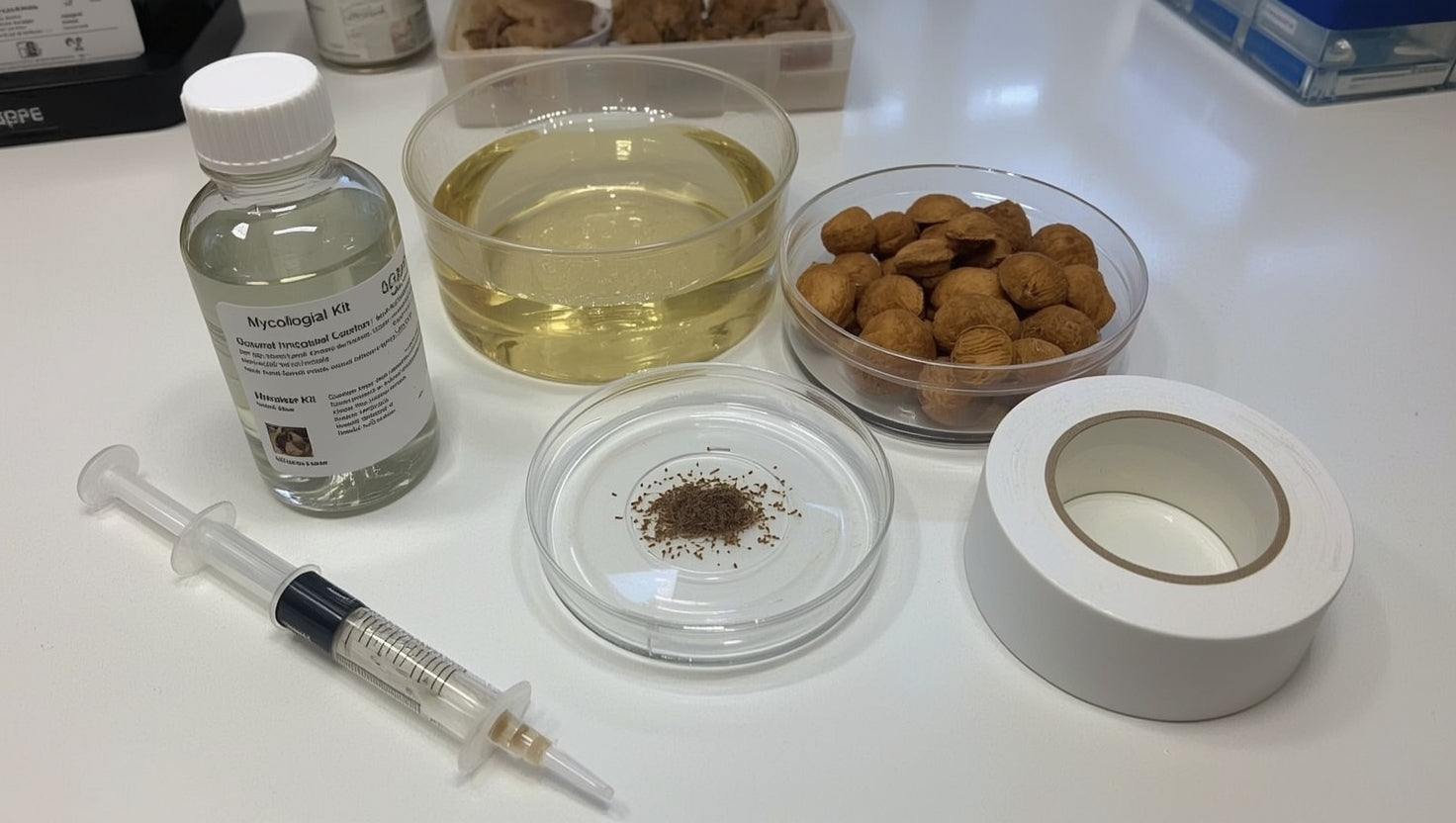
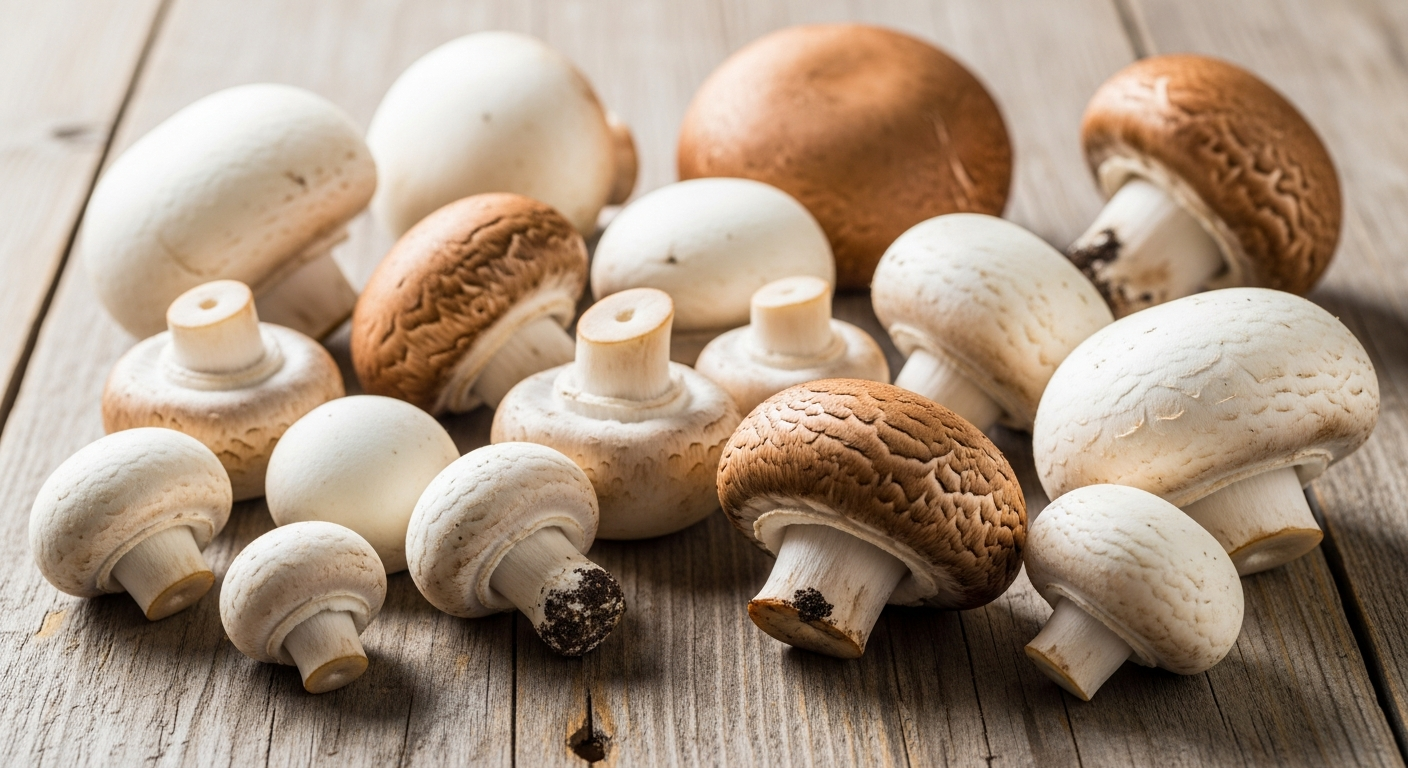

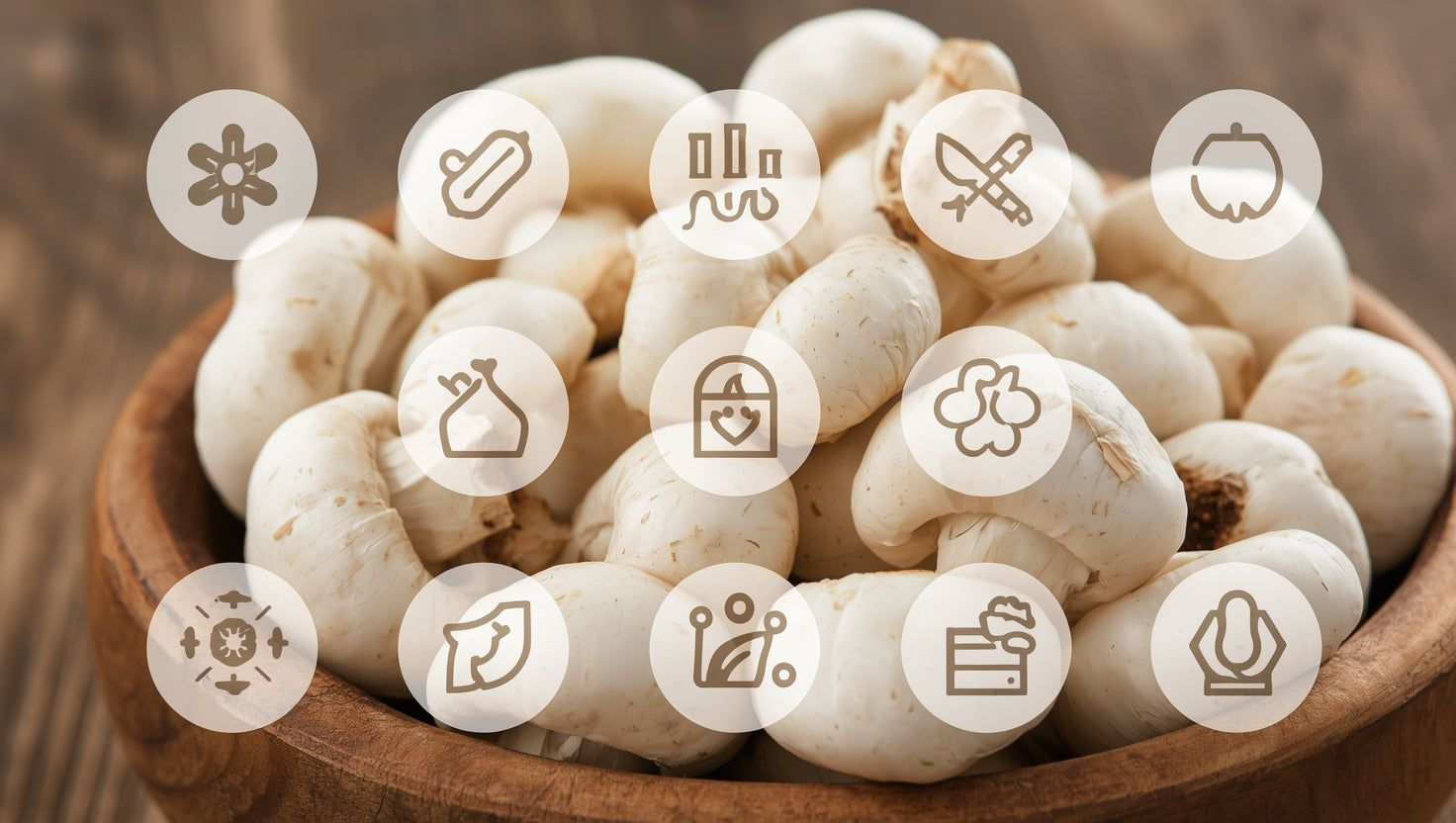
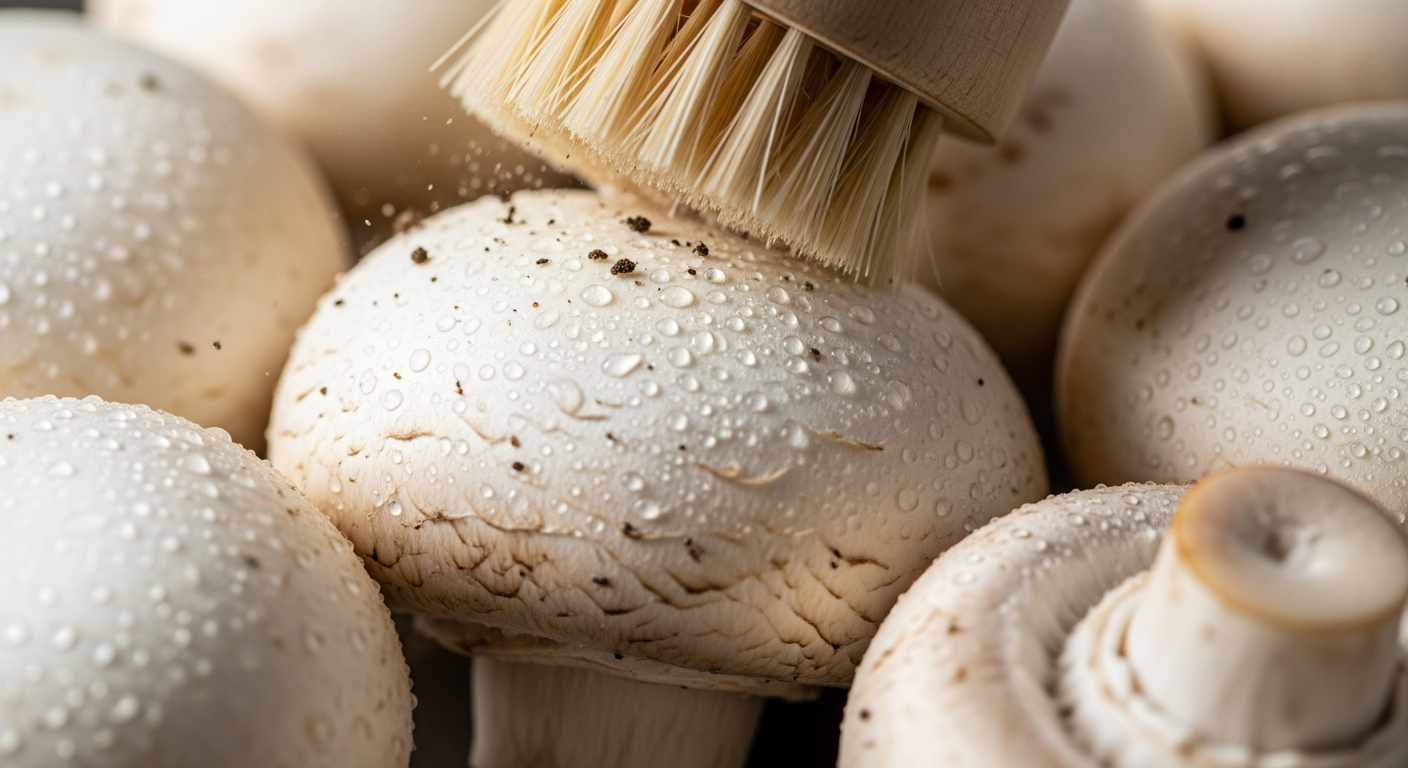
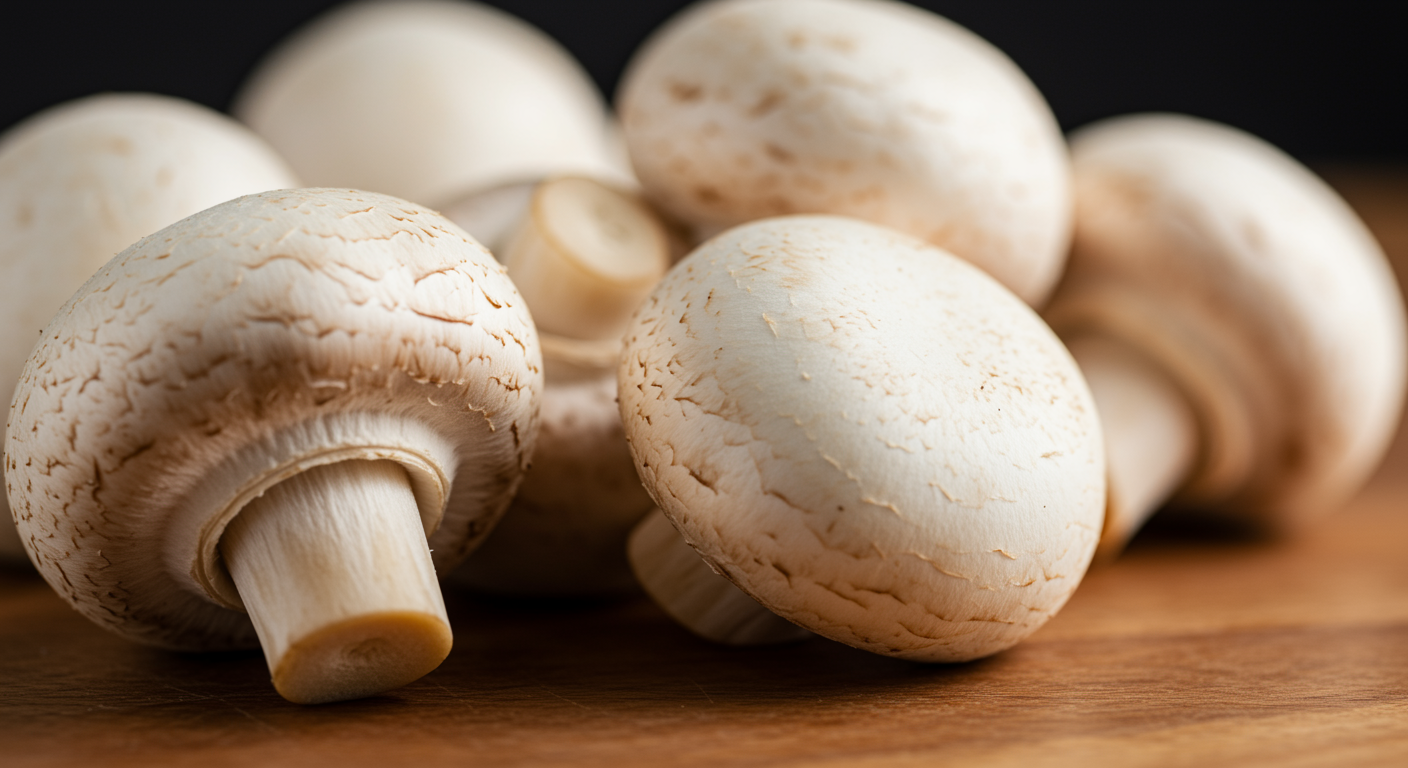
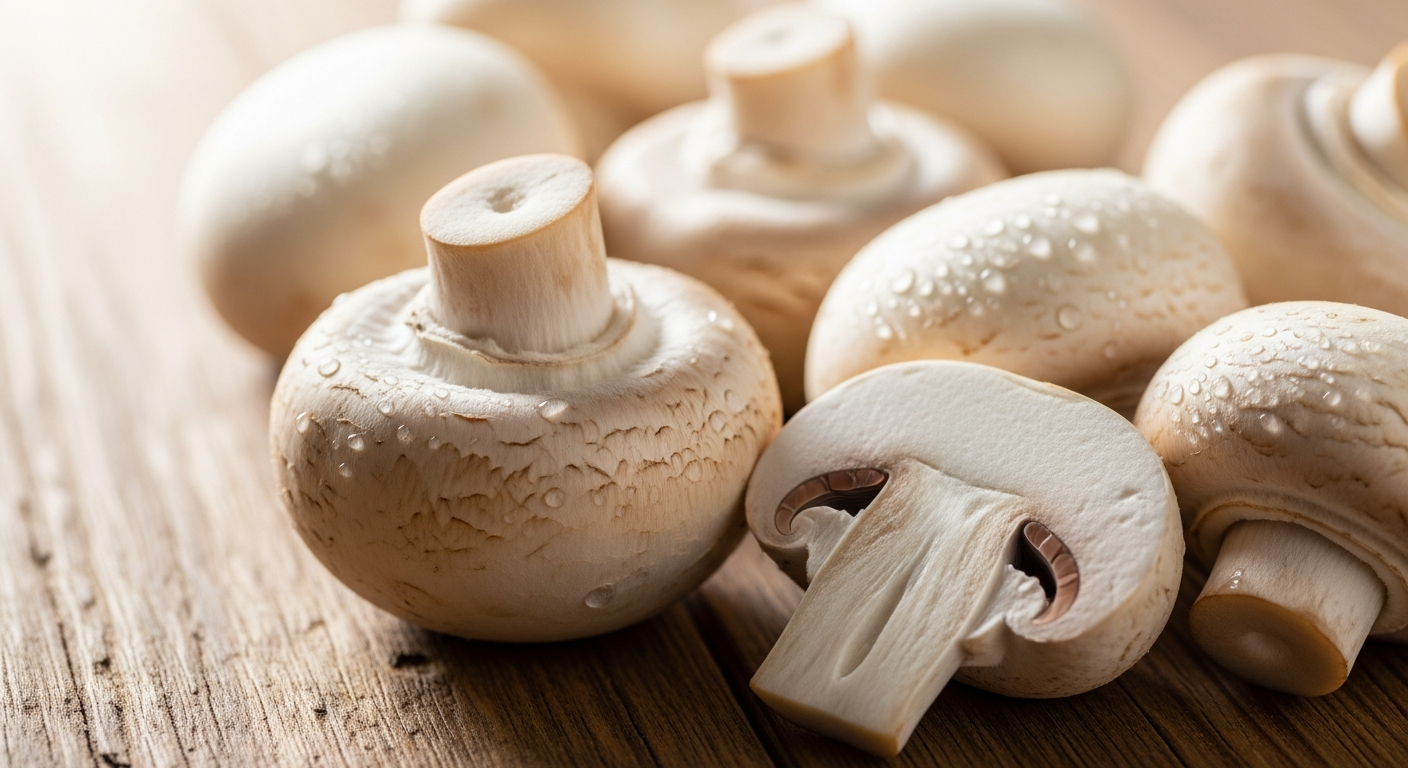
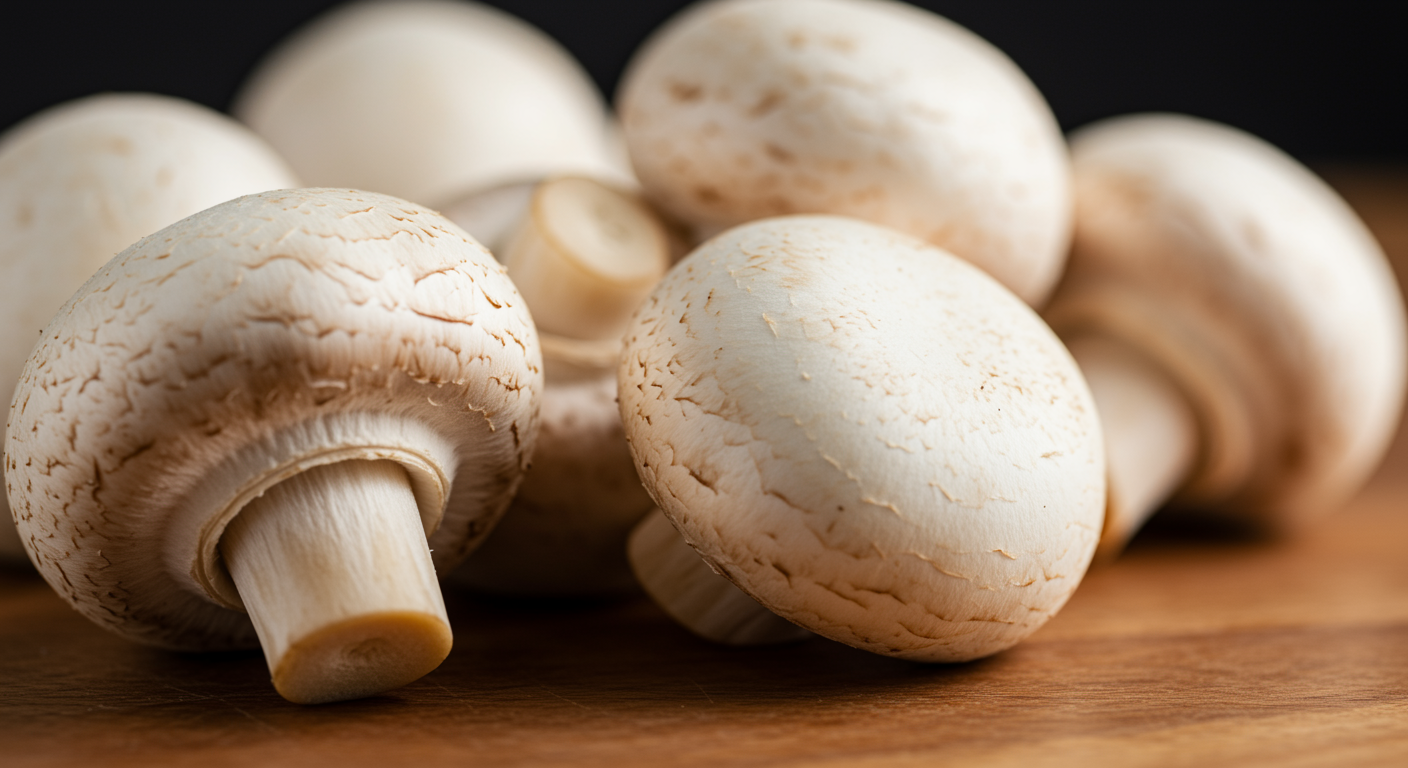
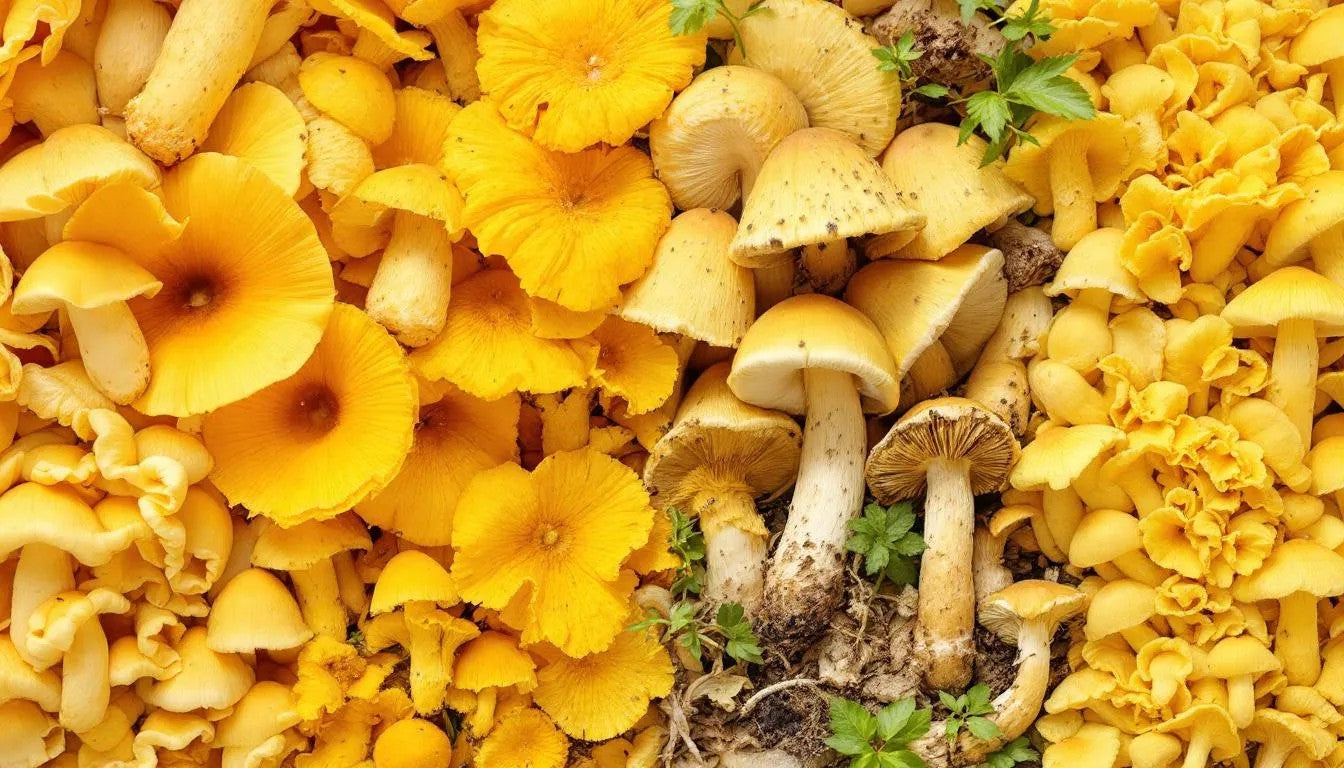


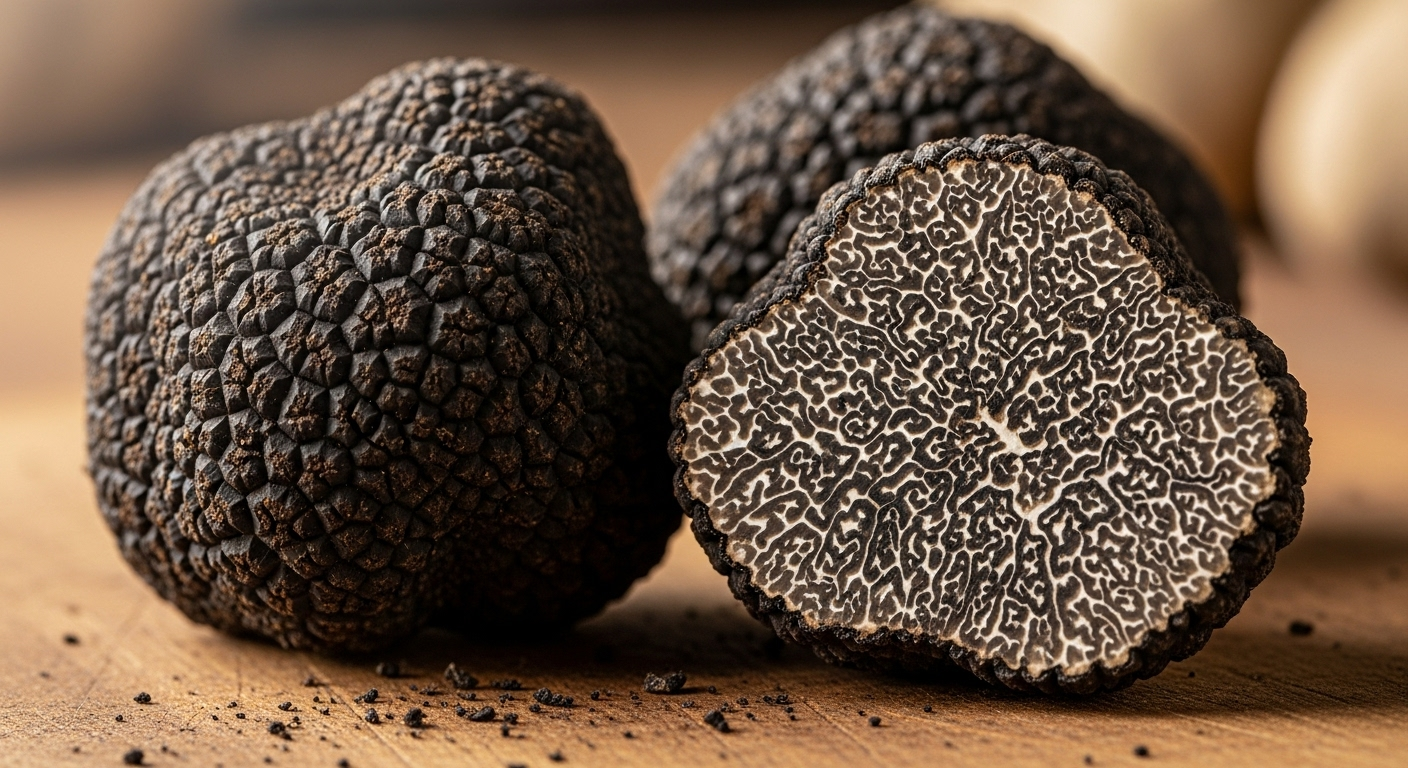
Share:
Cordyceps Mushrooms - Energy, Immunity, and Wellness
Mushroom Soup Secrets Unveiled: How to Create the Perfect Bowl of Comfort